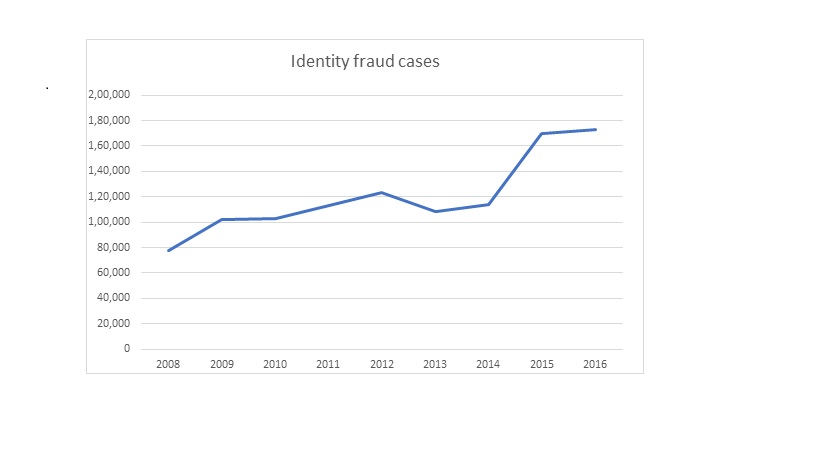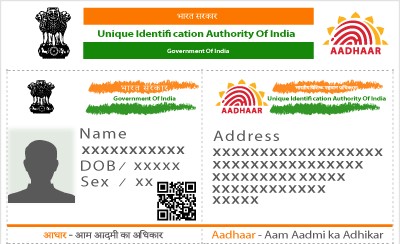Internet crime is on the rise even as the world wide web is expanding. With people’s personal data even less secure today, in part due to the popularity of social media and the web and an increased range of online services, the problem has assumed global proportions.
The UK announced in 2010 it was scrapping a plan for a national identity register after objections that it infringed on civil liberties. France is debating a mega database for biometric details of citizens, citing the threat of terrorism. The US Federal Trade Commission said identity theft complaints were the second-most reported in 2015, rising more than 47 per cent from 2014.
There has been a rise in the trend of identity theft cases globally this past year. In the past month alone, many cases of identity fraud have come to light, the most prominent of which are listed below.
16 Indians in US charged for credit-card fraud
Last week, 16 Indian-origin people, in the US have been charged for their alleged role in a massive stolen credit card and identity theft operation resulting in losses of over US$3.5 million.
Muhammad Rana, 40, of Queens in New York, was the leader of the massive fraud scheme who was helped by his deputy Inderjeet Singh (24). In all, 30 individuals were charged as authorities cracked down on the extensive stolen credit card and identity theft ring.
The ring was allegedly responsible for stealing the personal credit information of hundreds of consumers. The ring members ordered new credit cards for cardholders using the information and stole them out of the cardholders' mailboxes when they were delivered.
UK identity fraud cases on the rise
On March 15, 2017, Cifas, the UK’s leading fraud prevention service, has released new figures showing that identity fraud has hit the highest levels ever recorded. A record 172,919 identity frauds were recorded in 2016 more than in any other previous year. Identity fraud now represents over half of all fraud recorded by the UK’s not-for-profit fraud data sharing organisation (53.3% of all frauds recorded to Cifas), of which 88% was perpetrated online.
There were almost 25,000 victims under the age of 30. In particular, there was a 34% increase in under 21s. 2016 also saw increases in victims aged over 40, with 1,869 more victims recorded.
Mike Haley, Deputy Chief Executive, Cifas said, “These new figures show that identity fraud continues to be the number one fraud threat. With nine out of ten identity frauds committed online and with all age groups at risk, we are urging everyone to make it more difficult for fraudsters to abuse their identity. “
Online data is the easiest to be stolen or misused. UK telecommunications company Talk Talk customers were the targets of a massive tech support scam. Further investigation has linked the scam to two call centres in India.
The BBC reported that a gang from India was behind the scam calls, in which the gang's 60 employees used stolen information on TalkTalk customers to convince their victims that they are legitimate employees of the company. TalkTalk was breached in October 2015, leading to the theft of up to 150,000 customers' details.
'Fake doctor' Shyam Acharya tracked down in India
Police have tracked Shyam Acharya, who allegedly posed as Dr Sarang Chitale in hospitals for 11 years in New South Wales (NSW), to India. Acharya disappeared days before he was due to appear in court over charges of falsely representing himself as a doctor.
Health authorities allege he gained medical registration and was recruited by NSW Health by posing as UK doctor Sarang Chitale. He entered Australia on a fake passport in 2003 and worked in hospitals at Manly, Hornsby, Gosford and Wyong until 2014 while the real doctor practised as a specialist in the UK.
A billion identities at risk
Another point to keep in mind is that internet security is lagging far behind internet services, creating massive loopholes for criminals to exploit. The most recent example is that of India’s Aadhar system, which the government is attaching more services to every day, especially after Indian Prime Minister Narendra Modi’s demonetisation of the currency and commitment to creating a cashless economy.
Better known as Aadhaar, the Unique Identification Authority of India (UIDAI) system was created in 2009 to identify citizens and ensure they receive state benefits in their bank accounts. The government is seeking to link the database, with information on about 88 per cent of the population of more than 1.2 billion, including children, to all state services – from school admissions to passports and the purchase of cooking gas.
However, there have been many cases where the data gathered has been lost in transit, stolen or just displayed in the public domain by mistake. Just last month, the UIDAI shut down 12 websites and mobile apps each offering unauthorised Aadhaar-related services illegally and charging excessive money. It also pointed to 26 more fraudulent entities.
In a statement, UIDAI said that these illegal websites and mobile applications were providing unauthorised Aadhaar-related services such as downloading online Aadhaar card, providing status of Aadhaar generation, PVC (plastic) Aadhaar Card, to residents. In the process, these agencies were illegally obtaining the Aadhaar number and enrolment details from the residents.
Since there is no cure to the issue in sight, people must take their own precautions with personal information to prevent it from being stolen or being misused. Some simple steps are listed below:
- Turn on privacy settings across all the social media channels you use. And think twice before you share details – your full date of birth, your address, contacts details.
- Protect your devices with hard-to-guess passwords. Keep your passwords complex by picking three random words, and add or split them with symbols, numbers and capitals.
- Install anti-virus software on your laptop and any other personal devices and then keep it up to date.
- Take care on public wi-fi; fraudsters hack them or mimic them.
- Monitor your online activity and transactions. Report any suspicious credit or online activity to the service provider and the police as soon as you notice it.





